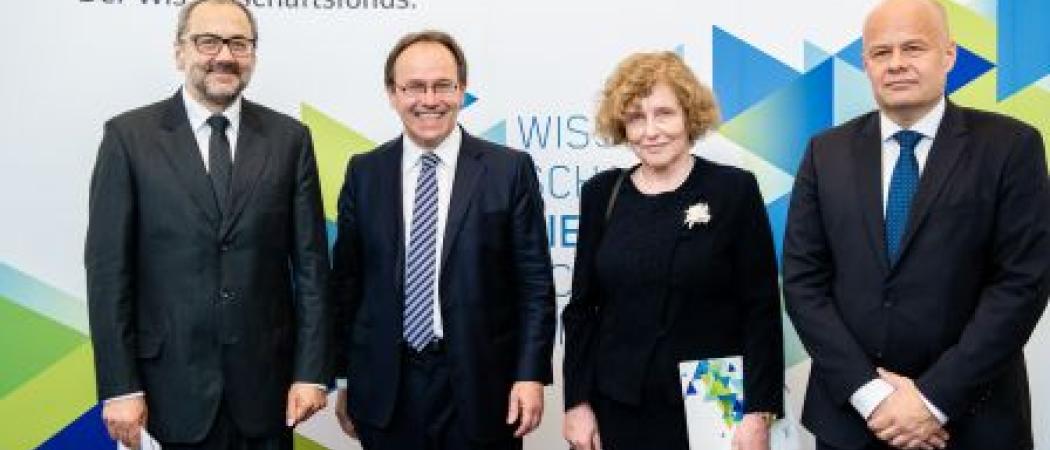The partnership aims to pool expertise in the region, increase the scale of research projects and reduce bureaucracy when applying for grants

From left to right: József Györkös – Director of ARRS (Slovenia), Klement Tockner – President of FWF (Austria), Alice Valkárová – President of GA CR (Czech Republic) and Zbigniew Błocki - Director of NCN (Poland)
The Central European Science Partnership (CEUS) is to launch its first call for proposals in February 2020, covering basic research in all scientific disciplines.
This follows on from an agreement earlier this year, under which the Austrian Science Fund (FWF), the Czech Science Foundation (GAČR), Poland’s National Science Centre and the Slovenian Research Agency joined forces to boost cooperation in the region through joint funding and evaluation of cross-border research projects.
Researchers working in the four countries will be able to apply for bilateral or trilateral joint projects, through a “lead agency”, which is usually the one putting the largest share of funding on the table. For example, if the Slovenian agency puts out a joint call with Austria, evaluations will be made in Slovenia, with the results confirmed by the Austrians.
CEUS aims to launch its first multilateral call for proposals on 22 February 2020, with FWF and GAČR in the role of lead agencies. The Slovenian and Polish agencies will launch the calls later in the year.
Proposals of either bilateral or trilateral joint research projects are eligible.
CEUS is the very first agreement of this kind in Europe signed by more than three national research funding agencies.
In June, all four agencies signed a memorandum of understanding to recognise each other’s evaluation standards and procedures, but they are expected to introduce new common rules detailing the administrative process before the launch of the first call.
Through the new funding calls, CEUS hopes to help countries in central Europe strengthen their research performance, climb up in innovation rankings and reduce the research and innovation divide between richer and poorer member states.
The partnership is aimed at pooling expertise in the region and increasing the scale of research projects. CEUS is also expected to significantly reduce the administrative burden for research teams of submitting proposals.





 A unique international forum for public research organisations and companies to connect their external engagement with strategic interests around their R&D system.
A unique international forum for public research organisations and companies to connect their external engagement with strategic interests around their R&D system.